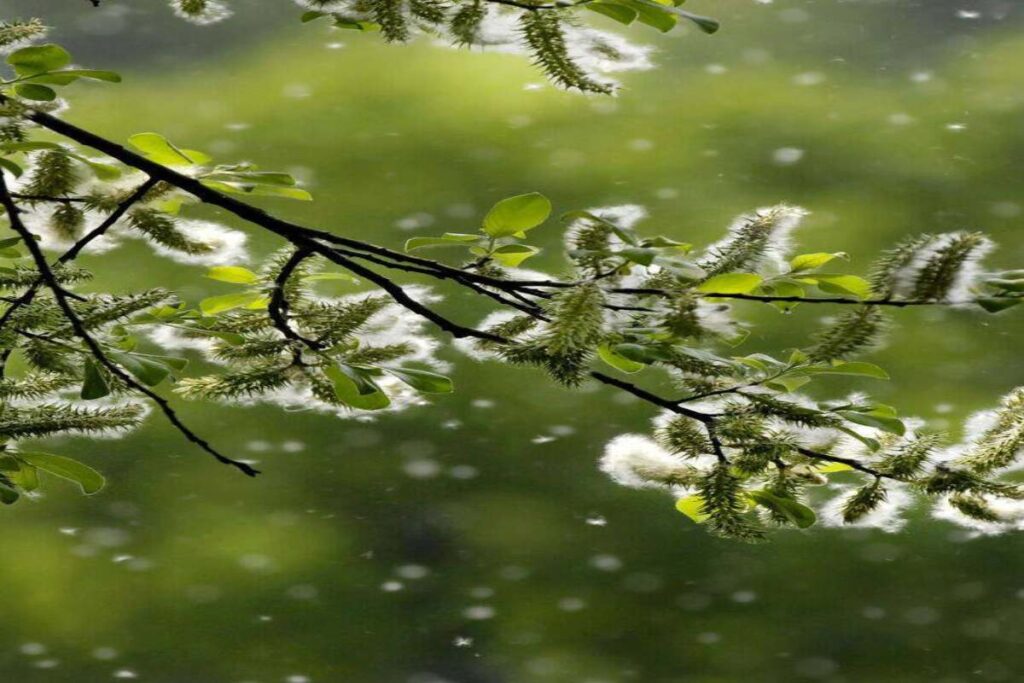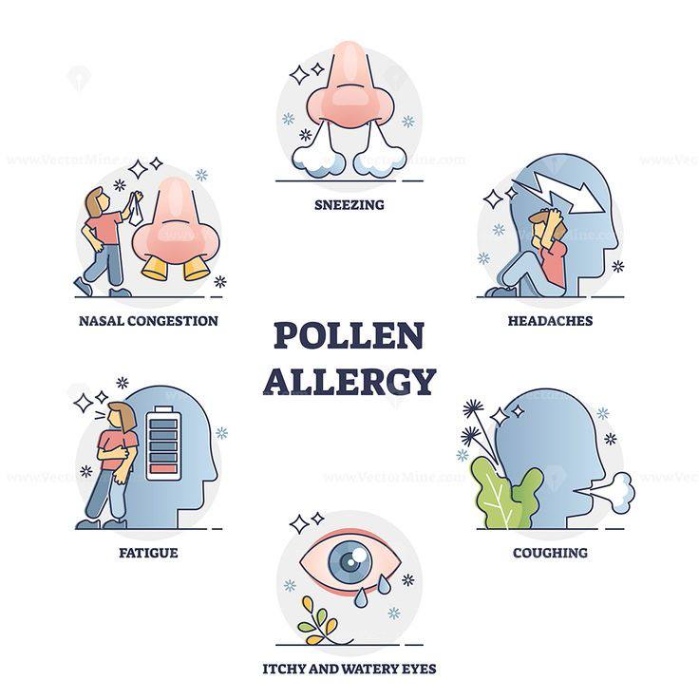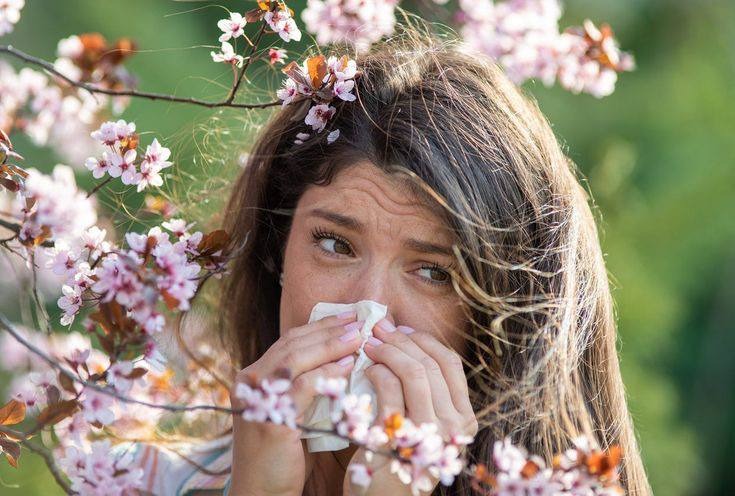Pollen has exploded to eye-watering levels in some parts of the country after warm weather pushed plants out of winter slumber much earlier than normal. For roughly 1 in 4 American adults, spring blooms mark the start of itchy, eye-watering, congested misery, and it’s only getting worse.

Experts agree that more people are becoming allergic to airborne irritants like pollen and mold. Allergy symptoms are more severe, and allergy seasons last longer than ever. You may also feel the increasing pollen burden even if you don’t have hay fever. Studies show pollen upsets the immune system even if it doesn’t inflame your airways.
In Atlanta, the pollen count skyrocketed to “extremely high” in early March and stayed high through much of April, according to the Atlanta Allergy and Asthma Physicians practice. Also, a study found that pollen count is projected to increase by 200% by the end of the century if planet-warming pollution continues to rise.
Blame Climate Change
Scientists say intensified seasonal allergies are among the first wave of anticipated health impacts from global warming and greater exposure to infectious diseases.
ALSO READ: Mental Health Expert Warns People Turning to AI Therapists
Recent studies have revealed that growing zones in the US are shifting as the climate warms, allowing plants and trees to expand their ranges. Rising temperatures also enable plants to bloom earlier and longer, prolonging pollen seasons.
What Causes Pollen?
Increased rainfall means plants release more pollen when they bloom, and higher numbers of thunderstorms cause pollen grains to burst. This makes them more irritating and worsens symptoms.

Also, shifting wind patterns in some parts of the world carry pollen over longer distances. “At least in some areas of the world, pollen is being distributed more widely. And people are being potentially exposed to different types of pollen that they weren’t before,” said Dr. Mary Margaret Johnson.
POLL—Do You Support a Single-Payer Healthcare System (Medicare for All)?
Dr. Johnson is a principal research scientist at the Harvard T.H. Chan School of Public Health who studies the health effects of climate change.
Evidence of Pollen Increase
There’s some evidence that increases in carbon dioxide in the atmosphere are making pollen more potent, too. Researchers in South Korea grew oak trees in special chambers where they could control the amount of carbon dioxide in the air surrounding the plants. They adjusted the carbon dioxide level to match the projected concentration in 2050.
The trees were planted in September 2009. Eight years later, they bloomed, and researchers collected and studied the pollen they produced. “And what they found was that there are billions more pollen grains that are produced,” said Lewis Ziska.
Ziska, an associate professor of environmental health sciences at the Mailman School of Public Health at Columbia University, said the pollen also seemed more allergenic.
“The protein on the exine, the outer shell of the pollen, those proteins that cause your immune system to respond are increasing,” he said, noting that his research group had seen the same phenomenon in ragweed plants.
Bad News on Allergy
The bad news for allergy sufferers doesn’t stop there. Dr. Leonard Bielory, an allergist and professor of medicine at the Hackensack Meridian School of Medicine in New Jersey, shared some information about pollen allergy.
ALSO READ: Florida Governor Blames Undocumented Immigrants for Health Care Costs
He stated that he and his colleagues studied the US population’s sensitization to various allergens over time and found that the number of allergens people are sensitive to has doubled over the past 25 years.
Climate Role on Allergy
Climate may be playing a role in the rise of allergies, Bielory says, but it could be more than that, too.

“Everybody wants to say it’s climate per se, but it also could be a microbiome issue,” he said. Changes to the microbiome, the bacterial populations that live on our skin and gut, may change how our bodies respond to pollen when they first encounter it, priming the immune system to react.
Suppose you’re not getting enough help from allergy medications anymore or use a rescue inhaler often; Bielory says it’s time to consider other options. He added that it might be time to consider some immunotherapy, which helps calm the immune system and keep it from reacting so strongly to your triggers.
You Might Also Like:
These Maya Angelou Quotes Will Inspire You Everyday
Authorities Discover Two Bodies, Arrest Four in Connection to Missing Kansas Women
Diddy Federal Probe Documentary in the Works as Companies Scramble to Produce Detailed Film
Polls Show RFK Jr. Could Threaten Biden in Key Battleground States
Suspect Kills Two Officers Investigating Suspicious Vehicle in New York
